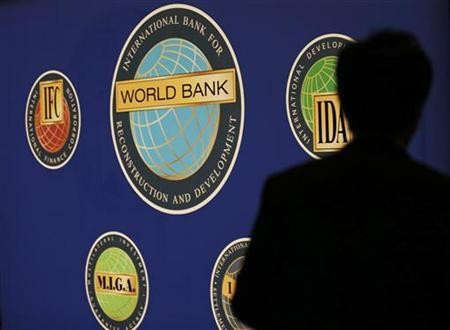World Bank to Lift Lending by 50% Over 10 Years Through Reforms

The World Bank wants to boost lending by 50% over the next decade by charging wealthier nations higher fees and loosening the limits on how much it can lend.
According Reuters, several people familiar with the matter told the news agency that the bank's board agreed to a plan to raise lending by $100bn (£60bn, €72.9bn) this week.
The sources who were not authorised to speak publicly said the specifics are supposed to be worked out ahead of the spring meetings of the World Bank and International Monetary Fund in April.
The bank's current loan portfolio is around $200bn.
The poverty-fighting institution based in Washington, has been undergoing its first major strategic repositioning since 1996 to make it more efficient and attuned to what nations need.
Under this new strategy, the World Bank said it was seeking fresh ways to boost its overall lending portfolio in order to keep itself relevant amid greater competition for development funds.
The World Bank's five biggest borrowers which are middle income countries and include China, India, Brazil, Turkey and Indonesia can rely on more private funding and bilateral loans as they grow.
However, the lender is betting that these countries want access to advice and expertise in areas including the environment and infrastructute poverty as they still suffer from notable poverty around these sectors.
Two of the sources said this $100bn lending boost would come specifically from the International Bank for Reconstruction and Development (IBRD) which is the arm of the lender that focuses on decreasing poverty in middle-income countries.
The IBRD gets contributions from each of its 187 member countries but the World Bank hopes to finance the higher lending itself, including by lowering its loan to equity ratio.
Similarly, the bank's chief financial officer, Bertrand Badré told Reuters in October that the World Bank plans to cut $400m from its administrative budget over the next three years to provide more money for recepient countries.
© Copyright IBTimes 2025. All rights reserved.






















